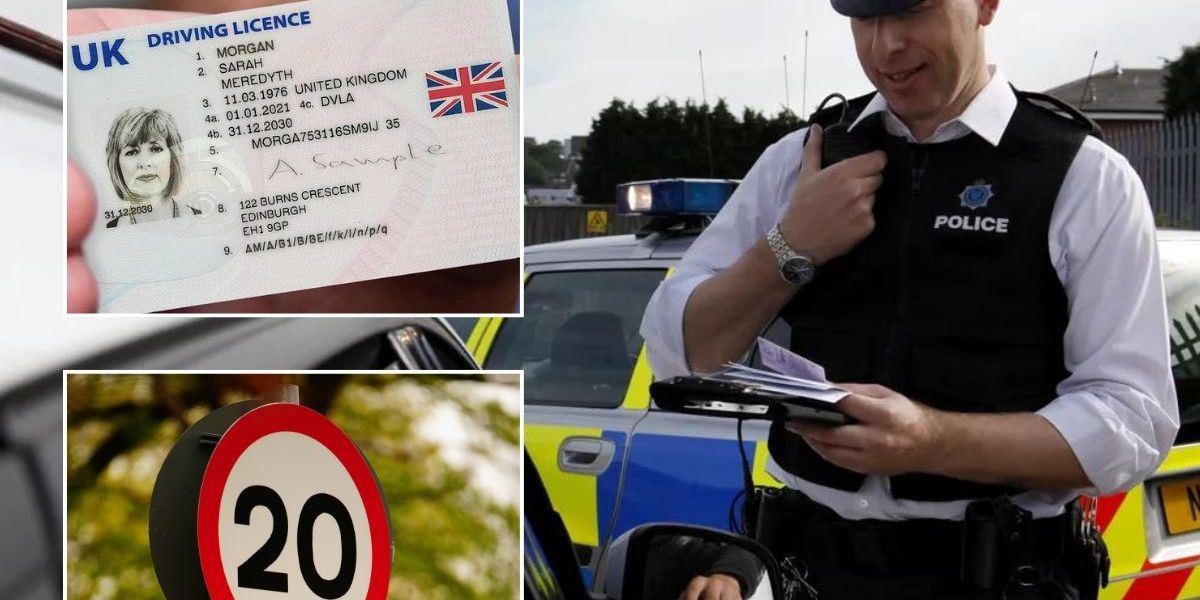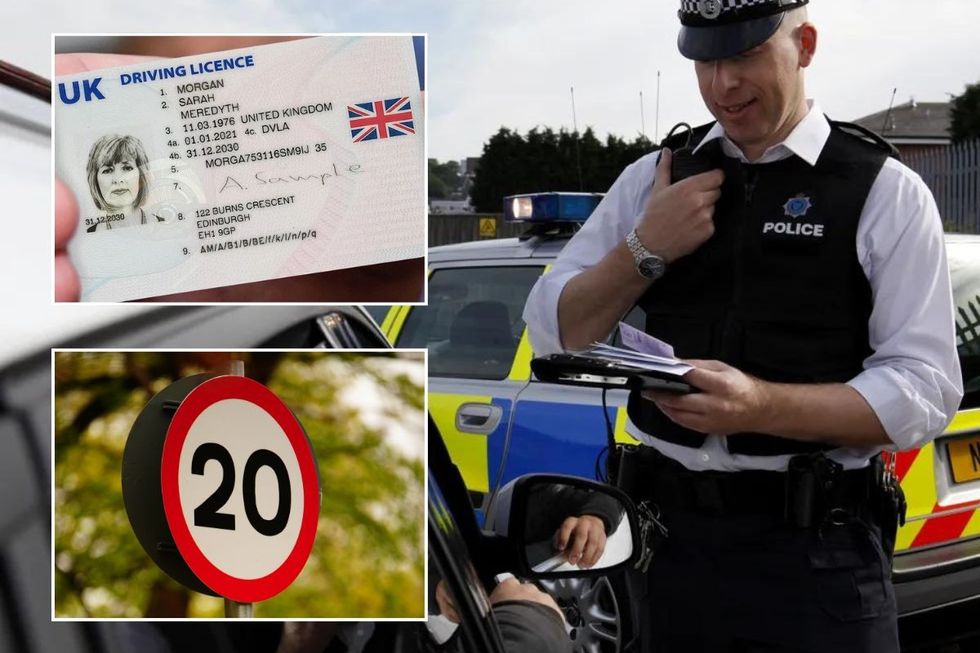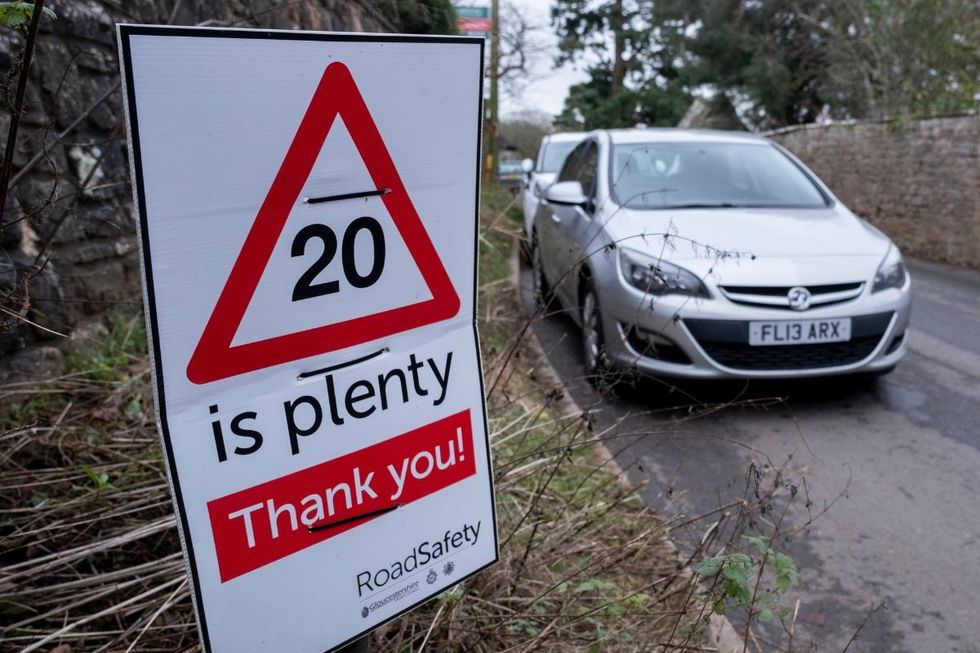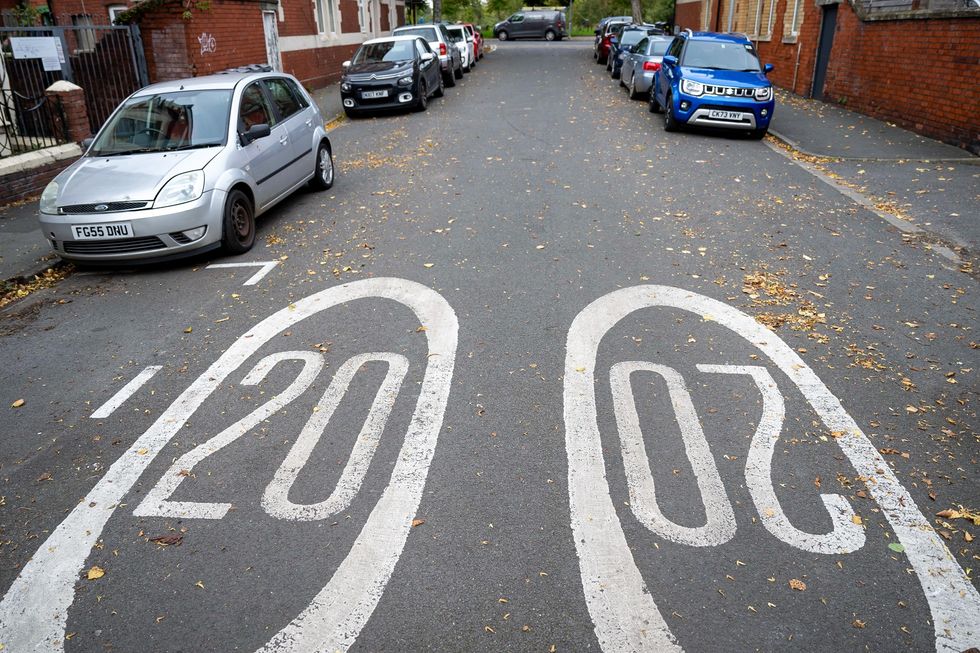



A legal expert has told GB News that drivers should not be given special exceptions for going over a 20mph speed limit, given the dangerous road safety consequences.
Towns and cities across the UK are introducing new 20mph speed limit roads at an accelerating pace, with experts pointing to clear safety benefits of slower speeds.
Wales was the first country in the UK to mandate 20mph as the default speed limit for restricted and residential roads in a bid to reduce the number of deaths and serious injuries on roads to zero.
In the year after the rules were introduced, 100 fewer people were killed or seriously injured on roads, with the number of casualties between July and September 2024 falling to the lowest three-month period since records began in 1979.

An expert has slammed proposals to lessen punishments for speeding in 20mph areas
GETTY/PA
If someone is caught exceeding the 20mph speed limit in a residential area, they can be slapped with a £100 fine and receive three penalty points on their licence.
Despite this, a new petition on the Parliament website has called for drivers who travel at 25mph on a 20mph road should receive just one penalty point.
The petition, which has already amassed more than 2,100 signatures, argues that penalty points can impact car insurance prices and a driver's ability to work.
It adds that in certain areas, particularly London, drivers are being "heavily punished" for exceeding 20mph when travelling to work.

A petition has called for motorists to be given just one penalty point if they exceed a 20mph speed limit
GETTYWhile these proposals have not yet reached the threshold of 10,000 votes needed for the Department for Transport to respond, it has been met with criticism.
John Kushnick, Legal Operations Director at National Accident Helpline, told GB News that any changes to penalty point rules would be "sending the wrong message".
He said: "These limits are there to protect vulnerable road users, especially children, older people, and pedestrians in general in built-up areas.
"A pedestrian hit at 30mph is far more likely to suffer fatal head injuries than at 20mph."
He clarified that speed limits were vital parts of national infrastructure and are there to save lives, with enforcement needed to deter motorists from breaking road rules.
Kushnick cited recent data which outlined how the bonnet height of new SUVs is increasing by half a centimetre every year, potentially causing major safety concerns for road users.
Certain vehicles with higher bonnets are designed in a way that drivers may not be able to see children as old as nine standing in front of the vehicle.
The RAM TRX pick-up truck, for example, has a bonnet which is taller than an average nine-year-old (1.36 metres), compared to a vehicle like a Volkswagen Golf, where the sloped bonnet allows motorists to clearly see a four-year-old child (1.1 metres).

Wales made 20mph the default speed limit on restricted roads in September 2023
GETTYReferring to the new data, the expert said reducing penalties would "only worsen the growing danger to children and other vulnerable road users".
Kushnick added: "Slower roads don't just reduce injuries, but they also make neighbourhoods feel safer and encourage more people to walk or cycle, which supports better public health.
"That's vital in a country where the cost of inactivity and obesity continues to strain both the NHS and the economy."
Guidance from the Government states that any speed limit changes should be "evidence-led and self-explaining", while local authorities should keep limits under review and only introduce 20mph limits "in the right places, over time and with local support".
